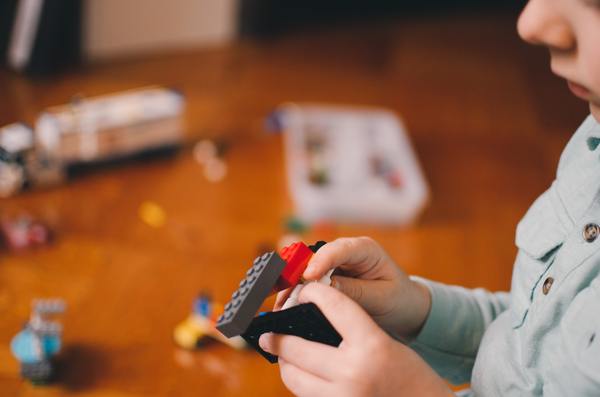I think, as parents we often rally between playing with our children, thus directing their play, and letting them be entertained, by TV or mobile or videos, in order to take a breath ourselves.
“Play is our brain’s favorite way of learning.” – Diane Ackerman
There is nothing wrong with playing with our children, of course, and a lot of fun videos out there to watch together but allowing our kids to play alone, in a stimulating and captivating, as well as safe, environment gives them the chance to discover new things for themselves.

According to Theorist John Dewey, children learn best through both physical and intellectual activity. This means active play is vital for kids. This brings me to present you with the benefits of learning through play.
- The umbrella term is extensively used in psychology to illustrate how a kid learns to make sense of the world around.
- It creates contentment while building self-awareness and self-esteem as they find different ways to tackle the challenges they encounter in play (like discovering that a square block can’t be stacked on a triangle one but a triangle block stacked on a square one will work).
- Taking time to recharge ourselves by teaching a child to play alone is a valuable gift to us and our children.
- Learning to play makes growing up through the toddler years very rich experience.
- Independent learning can only be gained through focused attention. Creating room for safe and independent play is the key to the development of this ability.
- This helps the child develops physical abilities and cognitive skills.
- It reduces stress for your kid as well as for you.
- Learn through play is proven to be more effective than traditional teaching methodologies.
- It helps the kid build self-worth. They’re better able to understand their abilities.
The more opportunities you give a kid to play, the happier they will be. The play should enjoyable, fun and should engage the child. Authors are invited for guest blogging.
Table of Contents
Here are our top selections of play that you can use to teach your kid:

- Dough – Calm your kid, improves focus and release excess energy
- Drawing, Painting – Helps to write and think creatively and develop hand-eye co-ordination
- Sand – Better small muscle control and improves eye-hand coordination
- Water – Enhances social skills
- Character play – Helps grow their social and emotional skills
- Blocks – Self-reliant, increase attention span, develop self-esteem
- Running, jumping – Keeps them physically fit
- Board games – Develops determination and patience
- Pretend Play – Improves imagining capabilities
- Nature Craft – Improves communication
- Singing, Dancing – Extremely healthy outlet for their emotions.
“When children pretend, they’re using their imaginations to move beyond the bounds of reality. A stick can be a magic wand. A sock can be a puppet. A small child can be a superhero.” – Fred Rogers
When the kid is playing, you need to be resting. You should avoid doing chores, especially when your kid is napping unless cleaning the house refreshes you.
Continuing the theme of balance and self-care, remember that nurturing your well-being is as vital as caring for your child. This mindset is particularly poignant as we celebrate milestones, like your daughter’s birthday, reminding us of our lives joy and growth.
In conclusion, if you set up a gated-off playroom for your child with interesting things to do and music, you will buy yourself the energy you need to spend time with God and minister to your husband. It really is worth it.













